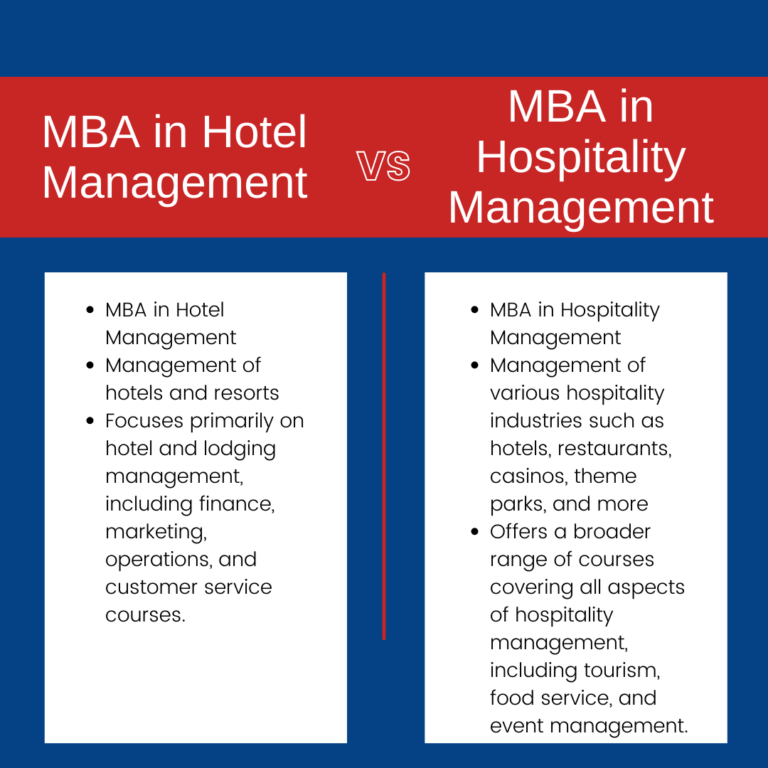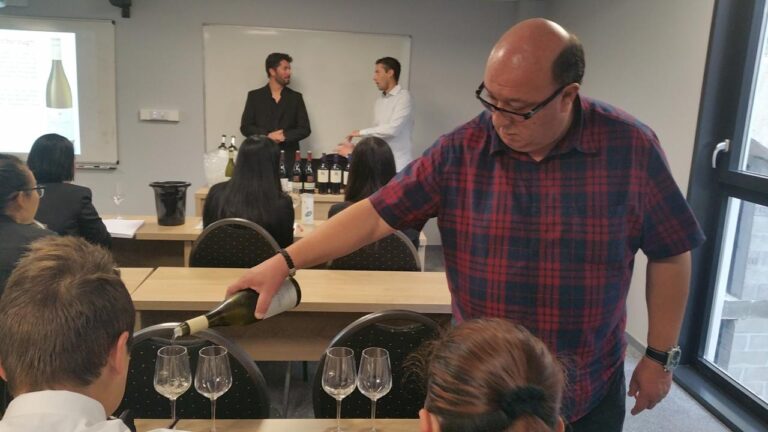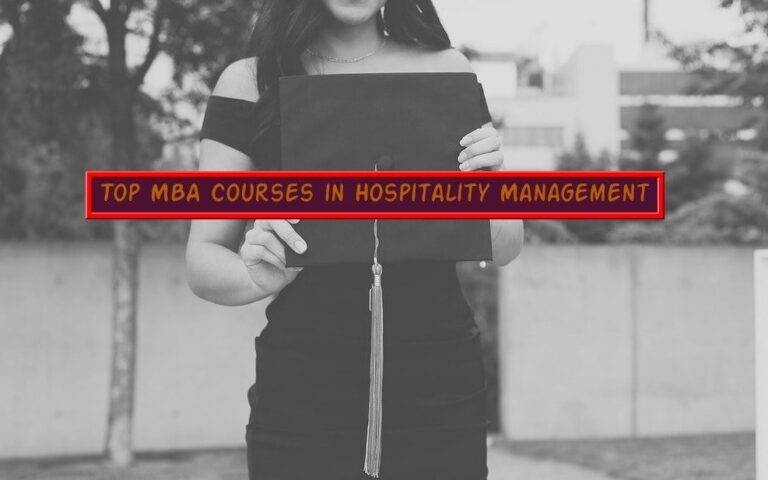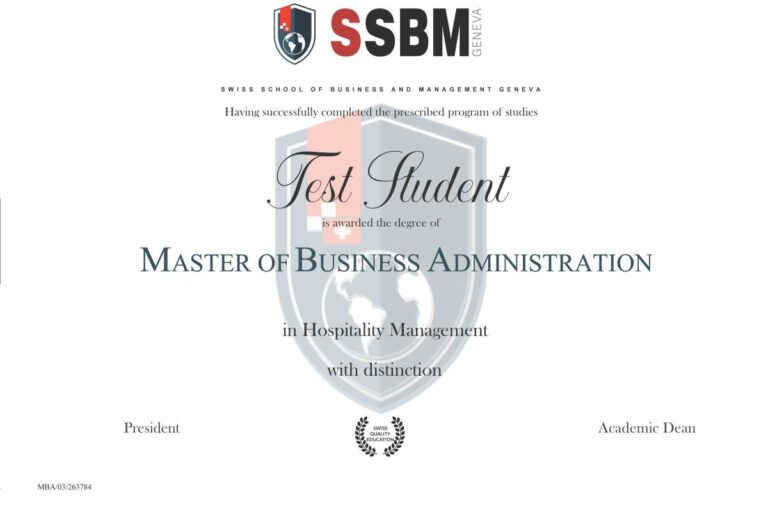Online MBA Tourism and Hospitality A Career Accelerator
Online MBA tourism and hospitality programs offer a flexible and comprehensive pathway to success in a dynamic and ever-evolving industry. These programs provide students with the essential business acumen and industry-specific knowledge needed to thrive in leadership roles within the tourism and hospitality sectors. A blend of theoretical foundations and practical applications ensures graduates are well-equipped to navigate the complexities of the modern market, from strategic planning and financial management to operational efficiency and customer relationship management.
The curriculum typically covers a broad range of subjects, including marketing, finance, operations management, and sustainable tourism practices, preparing graduates for diverse career paths.
The accessibility of online learning allows professionals to pursue advanced education without interrupting their careers. This format offers a unique advantage, enabling students to apply newly acquired knowledge directly to their current roles, leading to immediate professional growth. Furthermore, the diverse learning environment fostered in online programs provides opportunities for collaboration and networking with peers from various backgrounds and geographical locations, broadening perspectives and enriching the overall learning experience.
The combination of flexibility, practical application, and global networking makes online MBA programs in tourism and hospitality a compelling option for ambitious individuals seeking to advance their careers in this exciting field.
Program Overview

An Online MBA in Tourism and Hospitality offers a flexible and comprehensive education designed to equip professionals with the strategic management skills needed to thrive in this dynamic industry. This program caters to working professionals seeking career advancement or a career change, providing a rigorous curriculum delivered entirely online.
Curriculum of an Online MBA in Tourism and Hospitality
A typical online MBA in Tourism and Hospitality curriculum integrates core business principles with specialized knowledge in the tourism and hospitality sectors. Courses often cover areas such as strategic management, financial accounting, marketing management, operations management, revenue management, hospitality law, sustainable tourism, and technology applications in the industry. Elective courses may allow for specialization in areas like ecotourism, event management, or luxury hospitality.
The specific curriculum will vary depending on the institution offering the program.
Admission Requirements for Online MBA Programs in Tourism and Hospitality
Admission requirements typically include a bachelor’s degree from an accredited institution, a minimum GPA (often 3.0 or higher), and professional experience in a related field. Many programs also require submission of GMAT or GRE scores, although some may waive these requirements depending on the applicant’s work experience and academic record. A strong application essay outlining career goals and a professional resume demonstrating relevant experience are also essential components of the application process.
Some programs may require letters of recommendation.
Comparison of Online and On-Campus MBA Learning Experiences in Tourism and Hospitality
Online MBA programs offer significant flexibility, allowing students to study at their own pace and location. This is particularly beneficial for working professionals who may not be able to attend traditional on-campus classes. However, the lack of face-to-face interaction with professors and peers can be a drawback for some students. On-campus programs provide a more immersive learning experience with opportunities for networking and collaborative projects.
The learning experience in both formats is rigorous, requiring significant time commitment and dedication from the students. The choice between online and on-campus learning depends on individual learning styles, career goals, and personal circumstances.
Key Skills Gained from an Online MBA in Tourism and Hospitality
The following table summarizes the key skills gained from completing an online MBA in tourism and hospitality.
| Skill | Description | Application in the Industry | Future Value |
|---|---|---|---|
| Strategic Management | Developing and implementing long-term strategies for organizational success. | Developing marketing campaigns, optimizing operational efficiency, and navigating industry trends. | Essential for leadership roles and driving organizational growth. |
| Financial Management | Analyzing financial statements, budgeting, and managing financial resources effectively. | Making informed investment decisions, controlling costs, and maximizing profitability. | Crucial for securing funding, managing budgets, and ensuring financial stability. |
| Marketing and Sales | Understanding market trends, developing effective marketing strategies, and managing sales operations. | Attracting customers, building brand loyalty, and increasing revenue streams. | Highly valued in all aspects of the tourism and hospitality sector. |
| Operations Management | Optimizing processes, managing resources, and ensuring smooth operations. | Improving service delivery, enhancing customer satisfaction, and managing staff effectively. | Critical for maintaining efficiency and achieving operational excellence. |
| Revenue Management | Optimizing pricing strategies and maximizing revenue generation. | Setting competitive pricing, managing occupancy rates, and increasing profitability. | Essential for success in revenue-driven businesses within the industry. |
| Sustainable Tourism Practices | Understanding and implementing environmentally and socially responsible tourism practices. | Reducing environmental impact, promoting community engagement, and building a sustainable tourism business model. | Increasingly important for attracting environmentally conscious travelers and investors. |
| Technology Application in Hospitality | Utilizing technology to enhance operational efficiency and customer experience. | Implementing online booking systems, customer relationship management (CRM) tools, and data analytics. | Essential for staying competitive in a technologically driven industry. |
Career Paths and Opportunities

An online MBA in Tourism and Hospitality opens doors to a diverse range of career paths, offering graduates the skills and knowledge to excel in leadership and management roles within the dynamic travel and hospitality industry. This program equips individuals with a comprehensive understanding of business principles, strategic planning, and operational management, specifically tailored to the unique challenges and opportunities of this sector.
Graduates are well-positioned for advancement and impactful contributions across various organizations and departments.
The skills acquired through this program are highly transferable and applicable across the tourism and hospitality spectrum, leading to significant career progression potential. Successful graduates often find themselves in roles demanding strategic thinking, problem-solving, and effective team management. The combination of business acumen and industry-specific knowledge makes them highly sought-after candidates.
Job Roles and Responsibilities
This section details specific job roles attainable with an online MBA in Tourism and Hospitality, along with their associated responsibilities. These examples illustrate the breadth of career opportunities available to graduates.
For instance, a graduate might pursue a role as a Hotel General Manager, overseeing all aspects of hotel operations, including staff management, revenue generation, and guest satisfaction. Alternatively, a Tourism Marketing Manager would be responsible for developing and implementing marketing strategies to attract tourists to a specific destination or tourism product. Another potential career path involves becoming a Revenue Management Analyst, utilizing data-driven techniques to optimize pricing and inventory to maximize profitability.
These are just a few examples; the specific responsibilities will vary depending on the organization and the chosen role.
Salary Expectations and Career Advancement, Online MBA tourism and hospitality
Salary expectations for graduates with an online MBA in Tourism and Hospitality vary depending on factors such as experience, location, and the specific role. However, entry-level positions often offer competitive salaries, with the potential for significant increases as experience and responsibilities grow. Senior management roles, such as General Managers or Regional Directors, command substantially higher salaries.
Career advancement is often rapid for individuals who demonstrate strong leadership skills, strategic thinking, and a commitment to professional development. Many graduates progress to senior management positions within a few years, moving from entry-level roles to positions of increasing responsibility and authority. Opportunities for international work and career mobility are also common within the global tourism and hospitality industry.
Industries and Employment Opportunities
The following list showcases the diverse industries where graduates find employment, along with the types of roles they may fill.
The skills and knowledge gained from this MBA program are highly valuable across a broad range of organizations. This versatility allows graduates to pursue diverse career options based on their interests and preferences.
- Hotels and Resorts: General Manager, Revenue Manager, Marketing Manager, Sales Manager, Operations Manager, Human Resources Manager.
- Airlines and Cruise Lines: Marketing and Sales Manager, Operations Manager, Customer Service Manager, Revenue Management Analyst.
- Tourism Agencies and Destination Management Companies: Tour Operator, Marketing Manager, Sales Manager, Destination Specialist.
- Event Planning and Management Companies: Event Manager, Project Manager, Marketing Manager.
- Government Tourism Boards: Tourism Policy Analyst, Marketing and Promotion Specialist, Research and Development Manager.
- Consultancy Firms: Management Consultant specializing in tourism and hospitality, Strategy Consultant.
Program Accreditation and Recognition
Choosing an online MBA program requires careful consideration of its accreditation status. Accreditation signifies that the program meets rigorous quality standards, ensuring a valuable and recognized qualification. This section details the importance of accreditation in online MBA programs specializing in tourism and hospitality, identifies key accrediting bodies, and provides examples of reputable universities offering such programs.Accreditation in higher education is a rigorous process that validates the quality and integrity of an educational program.
It assures prospective students that the curriculum, faculty, and resources meet specific benchmarks, ultimately impacting career prospects and earning potential. Accreditation from recognized bodies lends credibility to your degree, making graduates more competitive in the job market and potentially opening doors to higher-paying positions and leadership roles. Furthermore, many employers specifically seek candidates with degrees from accredited institutions.
Key Accrediting Bodies for Online MBA Programs
Several organizations globally accredit online MBA programs. These bodies vary in their scope and specific requirements, but generally assess factors like faculty qualifications, curriculum rigor, student support services, and the program’s overall effectiveness. Examples include the Accreditation Council for Business Schools and Programs (ACBSP) and the Association to Advance Collegiate Schools of Business (AACSB International), both highly respected in the field of business education.
Regional accrediting agencies, such as those in the United States, also play a crucial role in evaluating the quality of higher education institutions, including those offering online MBA programs. The specific accrediting body for a given program should be clearly stated by the university.
Impact of Accreditation on Career Prospects
Accreditation significantly enhances career prospects for graduates. Employers often prioritize candidates with degrees from accredited institutions, viewing them as possessing a higher level of competency and a commitment to quality education. An accredited MBA in tourism and hospitality demonstrates a strong foundation in business principles tailored to the specific industry, making graduates more attractive to potential employers in various roles, from hotel management to tourism planning and destination marketing.
Furthermore, certain professional certifications or licenses may require or prefer graduates from accredited programs.
Examples of Reputable Universities Offering Accredited Online MBA Programs
Numerous reputable universities worldwide offer accredited online MBA programs with specializations in tourism and hospitality. While specific program offerings and accreditation status can change, examples of institutions known for strong programs include (but are not limited to): Cornell University (USA), ESSEC Business School (France), University of Surrey (UK). It is crucial to verify the accreditation status directly with the university and the relevant accrediting body before enrolling in any program.
Comparison of Accredited Online MBA Programs
The following table compares three hypothetical examples of accredited online MBA programs in tourism and hospitality. Note that actual program details, including costs and specializations, may vary significantly between institutions and should be confirmed directly with the universities.
| Program Name | Program Length (Months) | Estimated Cost (USD) | Specializations Offered |
|---|---|---|---|
| Example University A | 24 | 40,000 | Sustainable Tourism, Hotel Management, Event Planning |
| Example University B | 18 | 35,000 | Tourism Marketing, Destination Management, Cruise Tourism |
| Example University C | 30 | 45,000 | Hospitality Finance, Revenue Management, Luxury Hospitality |
Technological Aspects of Online Learning
The successful delivery of an online MBA in tourism and hospitality relies heavily on the effective integration of various technologies. This section explores the technological landscape of such programs, highlighting both their advantages and limitations, and comparing the resources available across different institutions. We will also examine how technology is specifically implemented within individual course modules.
Technologies Used in Online MBA Delivery
A robust online MBA program utilizes a range of technologies to create an engaging and effective learning environment. Learning Management Systems (LMS) form the central hub, providing a platform for course materials, assignments, communication, and assessment. Popular LMS platforms include Moodle, Canvas, and Blackboard. Video conferencing tools, such as Zoom and Microsoft Teams, facilitate real-time interaction between students and instructors, fostering collaborative learning and providing opportunities for immediate feedback.
Furthermore, virtual labs and simulations can provide immersive experiences, allowing students to apply theoretical knowledge to practical scenarios, replicating real-world hospitality operations. Specialized software for data analysis and market research may also be incorporated, equipping students with valuable industry-specific tools.
Advantages and Disadvantages of Online Learning in Tourism and Hospitality
Online learning offers several advantages in the tourism and hospitality sector. The flexibility of online programs allows students to balance their studies with work commitments, particularly valuable in an industry with often irregular working hours. Access to a wider range of instructors and resources, irrespective of geographical location, is another significant benefit. Furthermore, online platforms facilitate asynchronous learning, enabling students to engage with materials at their own pace.
However, the lack of face-to-face interaction can hinder the development of networking opportunities, crucial in a relationship-driven industry. The absence of hands-on practical experience in physical settings can also be a drawback, although virtual labs attempt to mitigate this. Successful online programs effectively address these challenges through carefully designed interactive activities and robust support systems.
Comparison of Technological Resources Across Programs
The technological resources available vary significantly across different online MBA programs. Some programs may invest heavily in cutting-edge virtual reality (VR) and augmented reality (AR) technologies for immersive simulations, while others might rely on more traditional methods. The quality and responsiveness of the LMS, the range of available communication tools, and the level of technical support provided are all factors that differentiate programs.
Programs with stronger industry partnerships may offer access to specialized software and databases relevant to the tourism and hospitality sector, providing students with a competitive edge. A thorough review of a program’s technological infrastructure is essential for prospective students to ensure it aligns with their learning needs and expectations.
Technology Integration in Specific Course Modules
The integration of technology is crucial for effective learning in each module. The following examples illustrate how technology enhances the learning experience in various course areas:
- Revenue Management: Students use specialized software to analyze pricing strategies and forecast demand, incorporating real-world datasets and interactive simulations to practice revenue optimization techniques. Online discussions facilitate the sharing of best practices and collaborative problem-solving.
- Sustainable Tourism: Interactive maps and data visualization tools are used to analyze environmental impact and explore sustainable practices. Students collaborate on virtual projects using shared online documents and present their findings via video conferencing.
- Digital Marketing in Hospitality: Students learn to utilize social media analytics tools and digital marketing platforms to create and implement marketing campaigns. Case studies are presented through interactive videos and simulations, allowing students to practice applying their knowledge.
- Hospitality Operations Management: Virtual tours of hotel properties and simulations of various operational scenarios allow students to gain hands-on experience in managing different aspects of hotel operations. Online quizzes and assessments reinforce learning and provide immediate feedback.
The Future of Tourism and Hospitality Management

The tourism and hospitality industry is undergoing a period of rapid transformation, driven by technological advancements, evolving consumer preferences, and global events. Understanding these shifts is crucial for future success in this dynamic sector. This section will explore the key trends shaping the industry, the challenges and opportunities they present, and how an online MBA in tourism and hospitality prepares graduates to navigate this evolving landscape.
Current Trends Shaping the Tourism and Hospitality Industry
Several significant trends are reshaping the tourism and hospitality landscape. These include the rise of sustainable and responsible tourism, the increasing importance of personalized experiences, the growing influence of technology, and the impact of globalization and geopolitical events. The demand for unique and authentic experiences is driving innovation in product offerings and service delivery. Simultaneously, the industry is grappling with issues such as environmental sustainability, labor shortages, and the need for digital transformation.
Challenges and Opportunities in the Coming Years
The industry faces significant challenges in the coming years. These include managing the impact of climate change, adapting to evolving consumer expectations, addressing labor shortages and skill gaps, and navigating geopolitical uncertainties. However, these challenges also present considerable opportunities. The growing demand for sustainable tourism, the potential for technological innovation to enhance efficiency and customer experience, and the emergence of new markets and travel styles all offer avenues for growth and innovation.
How an Online MBA Prepares Graduates for Future Success
An online MBA in tourism and hospitality equips graduates with the necessary skills and knowledge to address the challenges and leverage the opportunities Artikeld above. The curriculum typically covers areas such as strategic management, data analytics, digital marketing, sustainable tourism practices, and financial management. This comprehensive education allows graduates to develop strategic thinking, problem-solving, and leadership capabilities essential for navigating the complexities of the modern tourism and hospitality industry.
Furthermore, the flexibility of online learning allows professionals to upskill and reskill without interrupting their careers.
Projected Growth of Specific Sectors within Tourism and Hospitality
A visual representation of projected growth could be a bar chart. The horizontal axis would represent specific sectors, such as eco-tourism, luxury travel, medical tourism, and culinary tourism. The vertical axis would represent percentage growth projected over the next five years. For example, eco-tourism might show a 15% growth projection, while luxury travel might show a 10% growth projection, reflecting differing market dynamics.
The chart would visually demonstrate the varying growth trajectories of different segments within the tourism and hospitality sector, highlighting the opportunities presented by specific niches. For instance, the bar for “experiential travel” might be significantly taller than the bar for “traditional package holidays,” reflecting a shift in consumer preferences. The data for this chart would be sourced from reputable market research firms specializing in the tourism and hospitality sector, allowing for a realistic and data-driven projection.
Epilogue
In conclusion, pursuing an Online MBA in Tourism and Hospitality presents a significant opportunity for career advancement and personal growth. The flexible learning environment, combined with a comprehensive curriculum and industry-relevant skills development, empowers graduates to tackle the challenges and capitalize on the opportunities within this dynamic sector. The program’s focus on both theoretical knowledge and practical application ensures graduates are well-prepared for leadership roles, contributing to the continued success and innovation of the tourism and hospitality industry.
The accessibility and flexibility of online learning makes this pathway to a rewarding career accessible to a wider range of professionals, fueling the growth and development of this vital economic sector.
Answers to Common Questions: Online MBA Tourism And Hospitality
What are the typical job prospects after completing an online MBA in tourism and hospitality?
Graduates can find roles such as Hotel Manager, Resort Manager, Tourism Consultant, Event Planner, Revenue Manager, and various leadership positions in airlines, cruise lines, and travel agencies.
How long does it typically take to complete an online MBA in tourism and hospitality?
Program lengths vary, but many programs can be completed in 12-24 months, depending on the program’s structure and the student’s pace.
Are there any scholarships or financial aid options available for online MBA programs?
Many universities offer scholarships, grants, and other financial aid options. It’s best to check with the specific universities offering the program for details.
What technology skills are beneficial for success in an online MBA program?
Proficiency in using learning management systems, video conferencing tools, and basic computer skills is essential. Strong written and online communication skills are also crucial.
How does an online MBA program prepare students for the challenges of sustainable tourism?
Many programs incorporate modules on sustainable tourism practices, covering topics like responsible travel, environmental protection, and community engagement, equipping graduates to contribute to the industry’s sustainability efforts.





